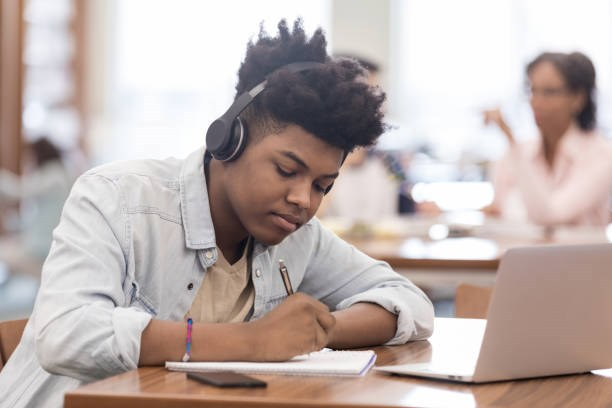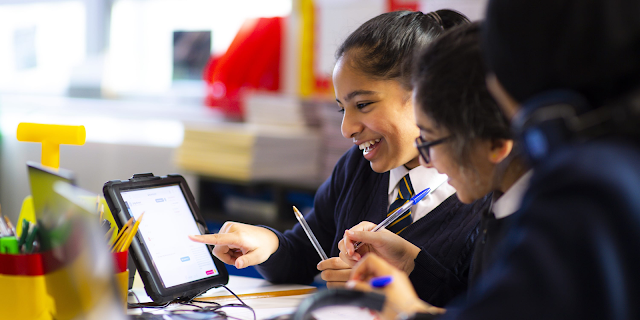Education Quotes on Learning & Students || Education Tips (alert-passed)
Education is the cornerstone of personal growth, empowerment, and societal progress. It has the power to transform individuals, communities, and even the world. Education quotes serve as nuggets of wisdom that encapsulate the essence of learning, inspire students, and remind us of the significance of knowledge. In this article, we will explore a collection of insightful education quotes that highlight the importance of lifelong learning, motivate students, and emphasize the value of education in various aspects of life.
Education is an ongoing adventure that accompanies us throughout our lives. It is a constant process of acquiring knowledge, skills, and experiences. There is no endpoint to learning; it continues indefinitely. Each day brings opportunities for new discoveries, personal growth, and overcoming challenges. While children may not fully grasp the significance of their educational path at present, the following quotes can ignite inspiration and motivation within them. Classroom Education Definition
 |
| Education Learning & Students |
Education Quotes to Power Up Kids’ Learnings & Help them Realize the Importance of Education! (alert-success)
- Education is the journey from ignorance to enlightenment." - Allan Bloom
- "If you give a man a fish, you feed him for a day; if you teach a man to fish, you feed him for a lifetime." - Maimonides
- "True learning leads to change and transformation." - Leo Buscaglia
- "Surround yourself with people who inspire and uplift you, for they will help you achieve greatness." - Mark Twain
- "Take charge of your day or let the day take charge of you." - Jim Rohn
- "Education is not about filling a vessel but igniting a flame within." - Socrates
- "Education is the most powerful tool to bring about positive change in the world." - Nelson Mandela
- "The best way to predict your future is to create it." - Abraham Lincoln
- "Learning is not a random occurrence; it requires passion and diligence." - Abigail Adams
- "Those who never make mistakes have never ventured into something new." - Albert Einstein
Education Tips For High School Students (alert-passed)
Set Clear Goals:
- Define specific academic and personal goals to stay focused and motivated.
- Break down long-term goals into smaller, manageable milestones.
- Regularly assess progress and make necessary adjustments to achieve desired outcomes.
Develop Effective Study Habits:
- Create a designated study space that is quiet, organized, and free from distractions.
- Establish a consistent study routine and allocate sufficient time for each subject.
- Use active learning techniques such as summarizing, visualizing, and teaching others to enhance understanding and retention.
Prioritize Time Management:
- Create a schedule or planner to organize academic tasks, extracurricular activities, and personal commitments.
- Set realistic deadlines and allocate time for studying, homework, projects, and leisure activities.
- Learn to balance academic responsibilities with self-care to avoid burnout.
Seek Help and Support:
- Don't hesitate to reach out to teachers, classmates, or tutors for clarification and assistance.
- Form study groups or join academic clubs to collaborate and learn from peers.
- Utilize available resources such as libraries, online educational platforms, and tutoring services.
Take Advantage of Extracurricular Activities:
- Engage in extracurricular activities that align with your interests and passions.
- Join clubs, sports teams, or community organizations to develop leadership skills and explore new areas of interest.
- Balancing academics and extracurriculars fosters personal growth and adds depth to college applications.
Practice Effective Note-Taking:
- Develop a note-taking system that works best for you, whether it's handwritten or digital.
- Actively listen during lectures, highlight key points, and organize information in a structured manner.
- Review and revise your notes regularly to reinforce learning and prepare for exams.
Cultivate Healthy Study Habits:
- Maintain a balanced lifestyle by prioritizing physical activity, healthy eating, and sufficient sleep.
- Take regular breaks during study sessions to refresh your mind and prevent fatigue.
- Practice stress-management techniques like deep breathing, meditation, or engaging in hobbies.
Embrace Continuous Learning:
- Foster a love for learning by exploring subjects beyond the curriculum.
- Read books, articles, or blogs related to your interests and engage in self-directed learning.
- Stay curious, ask questions, and seek opportunities to expand your knowledge.
High school is a transformative period filled with academic challenges and personal growth. By setting clear goals, developing effective study habits, managing time wisely, seeking help and support, participating in extracurricular activities, practicing note-taking skills, maintaining a healthy lifestyle, and embracing continuous learning, high school students can maximize their educational experience and set themselves up for future success. Remember, education is not just about grades; it's about nurturing a lifelong love for learning and personal development. The Teacher Retirement System
 |
| Education Study Skills Guide |
Study Skills Guides
General Study Skills Guides
Test Taking Guides
Study Skills Resources by Subject
What are study skills?
Time management
Organisation
When you’re taking on board information, being able to take notes effectively will be hugely helpful. It will give you something to refer to later, and, if you’re writing by hand, help drive the information deeper into your brain.(alert-success)
Essays are a great way of demonstrating that you know what you’re talking about. Writing them can also help you figure out exactly where the gaps in your knowledge lie.(alert-passed)
Most of the advice you find online will be geared towards the average student – a young person who spends their time surrounded by other young people. If you don’t fit into this category, then it’s worth tweaking your approach until you find a method that works for you. (alert-success)
It might be that you didn’t spend much time in the education system during your formative years. Perhaps you didn’t consider it worthwhile, or perhaps you were denied the opportunity. (alert-passed)
Improve Education - Improve Schools
Enhancing Teaching Methods and Pedagogy:
Embracing innovative teaching approaches that cater to diverse learning styles.Promoting student-centered learning to encourage active engagement and critical thinking.Providing professional development opportunities for teachers to enhance their instructional techniques. (alert-passed)
Investing in Infrastructure and Resources:
- Upgrading school facilities to create safe, conducive learning environments.
- Equipping classrooms with modern technology and educational resources.
- Ensuring access to a wide range of educational materials, including books, digital resources, and research materials.
Fostering Collaborative Learning:
- Encouraging teamwork and collaboration among students through group projects and activities.
- Creating opportunities for peer-to-peer learning and knowledge sharing.
- Cultivating a supportive classroom culture that promotes respect, empathy, and inclusivity.
Individualized Learning and Support:
Recognizing and addressing the unique needs and abilities of each student.Implementing personalized learning plans to cater to diverse learning paces and interests.Providing additional support, such as tutoring or counseling, to students who require it.(alert-success)
Engaging Parents and the Community:
- Building strong partnerships between schools, parents, and the local community.
- Involving parents in their children's education through regular communication and parental involvement programs.
- Collaborating with community organizations to provide additional resources and support for students.
Promoting Well-rounded Education:
- Offering a comprehensive curriculum that includes academic subjects, arts, physical education, and life skills.
- Encouraging extracurricular activities and clubs to foster students' talents and interests.
- Incorporating social and emotional learning to promote well-being and resilience.
Continuous Assessment and Feedback:
- Implementing regular assessments to monitor students' progress and identify areas of improvement.
- Providing constructive feedback to students to help them understand their strengths and areas for growth.
- Using assessment data to inform instructional strategies and personalize learning experiences.




